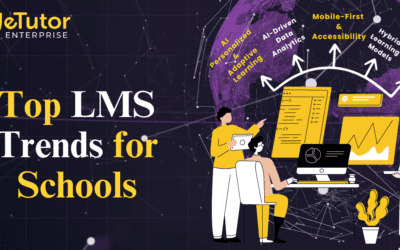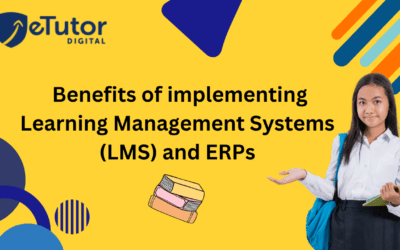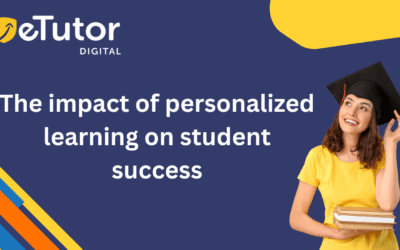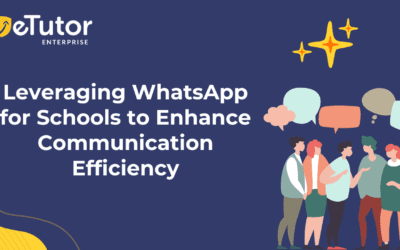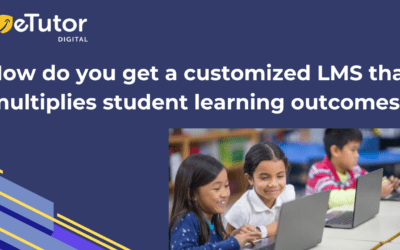The Evolution of School LMS: From Traditional Classrooms to Digital Learning
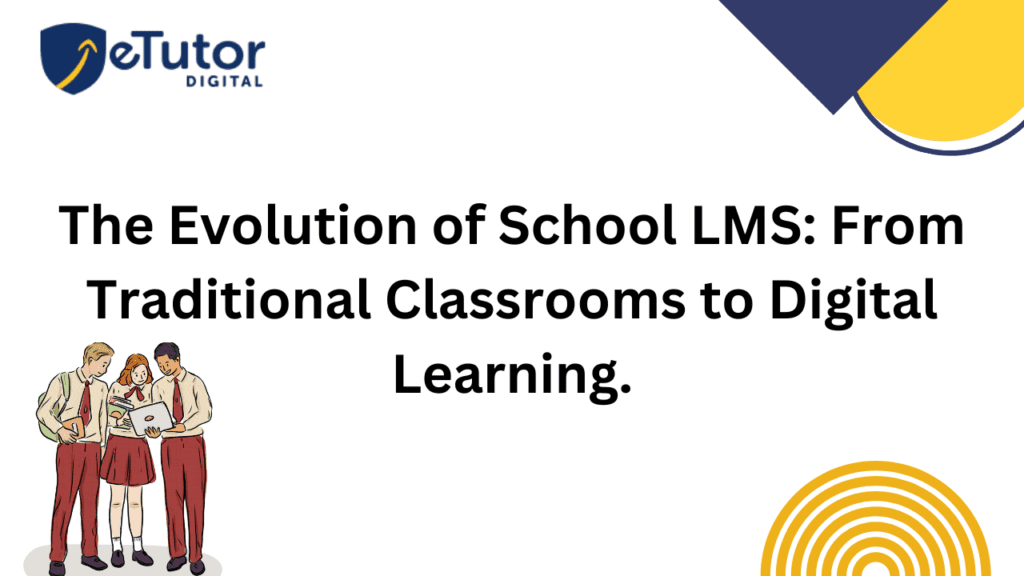
Table of Contents
ToggleIntroduction
In the modern landscape of education, the integration of technology has revolutionized how students learn and teachers instruct. One of the important advancements in this transformation has been the adoption of Learning Management Systems (LMS) in schools. These platforms have not only streamlined administrative tasks but have also fundamentally changed the dynamics of classroom interaction and student engagement.
Traditional Classrooms: The Beginning of an Era
Not long ago, education was primarily confined to the four walls of a classroom. Students relied on physical textbooks, face-to-face interactions with teachers, and traditional assessment methods like exams and quizzes. While effective in many ways, this model had its limitations in terms of flexibility, accessibility, and personalized learning experiences.
The Rise of Digital Learning Management Systems:
The advent of Learning Management Systems marked a paradigm shift in education. These digital platforms provided a centralized hub where teachers could manage courses, deliver content, and track student progress—all in a virtual environment. Early LMS platforms focused on basic functionalities such as hosting course materials and facilitating online assessments.
As technology advanced, many new features were added to modern LMS that were designed to enhance student learning outcomes.
New features added to modern LMS:
1.Content Delivery: From multimedia presentations to interactive modules, LMS platforms allow educators to deliver content in engaging formats that cater to diverse learning styles.
2.Assessment and Feedback: Online quizzes, instant grading, and feedback mechanisms enable educators to assess student understanding more efficiently and provide timely guidance.
3.Collaboration Tools: Discussion forums, group projects, and virtual classrooms foster collaboration among students, transcending physical boundaries.
4.Analytics and Reporting: Data-driven insights help educators track student performance, identify areas for improvement, and tailor instructional strategies accordingly.
5.Accessibility and Flexibility:< LMS platforms support anytime, anywhere learning, accommodating the diverse needs of students and promoting lifelong learning beyond the classroom.
eTutor LMS: Empowering Schools for Digital Learning:
eTutor LMS is a leading platform that comes with all the advanced features of modern LMS. Here’s how it supports schools:
1. Accessibility and Flexibility:
eTutor LMS for schools allows students to access learning materials remotely, which ensures continuous learning regardless of physical location. For example, imagine a rural school where students previously had limited access to advanced courses or specialized subjects. With eTutor LMS, these students can now participate in virtual classrooms, bridging the educational divide.
2. Personalized Learning Paths:
One of the most significant advantages of eTutor LMS is its ability to cater to diverse learning needs. Teachers can create personalized learning paths and deliver customized content based on each student’s pace and understanding. For instance, a student struggling with algebra can receive additional resources and interactive tutorials through eTutor LMS, helping them grasp concepts more effectively than in a traditional classroom setting.
3. Collaboration and Engagement:
Traditional classrooms often limit collaboration to in-person interactions. eTutor LMS enhances collaboration by providing discussion forums, group projects, and real-time messaging features. Consider a scenario where students from different continents collaborate on a history project, sharing perspectives and insights that enrich their understanding of global events—all made possible through eTutor LMS.
Assessing student progress and providing timely feedback is integral to effective teaching. eTutor LMS streamlines this process with automated grading, detailed analytics, and instant feedback mechanisms. For example, teachers can monitor quiz results in real-time, identify areas where students are struggling, and intervene promptly to offer support or additional resources.
5. Integration with Digital Tools like ERP:
To further enrich the learning experience, eTutor LMS seamlessly integrates with various digital tools and resources. From multimedia content and interactive simulations to virtual field trips and educational games, teachers can leverage these resources to make learning engaging and immersive. Imagine a science class using virtual reality simulations through eTutor LMS to explore complex scientific concepts in a safe and controlled environment.
Impact on Teaching and Learning
The integration of eTutor LMS in schools has reshaped the roles of both educators and learners:
Conclusion:
The evolution of school LMS from traditional classrooms to digital learning has revolutionized education by making it more accessible, personalized, and engaging than ever before. Our platform, eTutor LMS, plays a crucial role in this transformation, empowering schools to embrace the possibilities of digital education fully. As we continue to navigate the dynamic landscape of education, it’s clear that LMS will remain at the forefront, shaping the future of learning worldwide.
Ready to explore how our school LMS platform transforms educational delivery?
Recent Posts
- eTutor Offline Exam Software for IIT-JEE, NEET, and Foundation with Student Performance Analytics
- NEET Test Generator for Academies & K-12 Schools
- How School ERP Software Maximizes Productivity and Minimizes Cost
- How Does ERP Software for Schools Help Educators?
- Why Educational Institutions Need Online Exam Software in 2025


